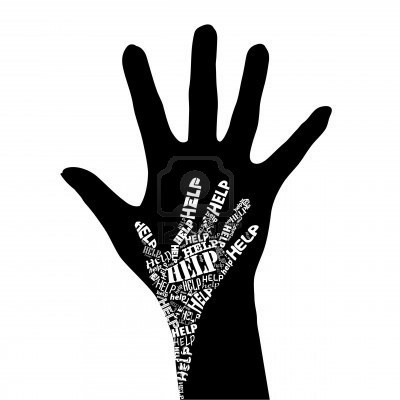Black People Can Handle It: Empathy and Educational Inequity
A lack of empathy perpetuates racial disparities…. At least, that is what Slate writer, Jason Silverstein, argues. Touching on a plethora of severe identity issues within our “post-racial” society (just kidding, that doesn’t exist), Silverstein demonstrates problematic assumptions on “what it means to be black.” Answers to this question are often infused with essentialist claims about the existence of a monolithic black experience: pain, struggle, disenfranchisement, poverty, racism, etc.. This view is not new, but to what extent do these singular notions of blackness perpetuate racial disparities?
Silverstein would argue that this problematic and ideologically rooted belief ultimately normalizes racial disparities, claiming a strong correlation between perceived privilege (or lack thereof) and perceived pain. The more assumed privilege a person has, the more pain he/she is perceived to experience. Conversely, the more perceived hardship, the less perceived pain. Unfortunately, because of this assumption that being black is inextricably linked to pain, a negative cycle of disparity is produced. Silverstein states, “Because they are [perceived to be] less sensitive to pain, black people are forced to endure more pain.”
Notably, this negative cycle is most evident within the criminal justice system with the uneven/unfair sentencing for black youth versus white youth. The criminal justice system, however, is but one example. Consider education.
The Educational Equity Project at the Chicago Lawyers’ Committee for Civil Rights knows the racial disparities in our nation’s schools all too well. Staff for the Committee’s Educational Equity Project work with volunteer attorneys across Chicagoland to fight for fair, accessible and adequate education for all people, regardless of color or socioeconomic status. Notably, many staff have protested and lobbied against the Chicago school closings that will disproportionately affect students of color. In addition, the staff has also fought extensively on behalf of the disproportionate amount of minority students that are suspended from Chicago Public Schools (CPS). Jessica Schneider, staff attorney, has been a vocal critic of the recent charge of Chicago charter school targeted expulsions. Eve Rips, legal fellow for the Education Equity Project, argues that CPS should adopt a student Bill of Rights for adequate legal protection for students within schools; one that would ensure that all students receive proper protections when facing harsh disciple. Though denied by the Supreme Court, a bill rights is essential considering the 1 in 6 black youth that are suspended across the nation, compared to the 1 in 20 white youth.
Understanding the issue of educational inequity in CPS specifically, rapper Lupe Fiasco stated to a group of black graduating males, “you have graduated from one of the most terrible, substandard school systems in the entire world.” Though touching on a humongous issue, Fiasco was actually wrong. CPS actually has renowned schools. These schools, however, are reserved for richer and predominantly white students. Many of the black student in Chicago don’t have the privilege of attending these elite institutions.
Recall Silverstein’s discussion. More privileged people are perceived to be more sensitive to pain, because their privilege has shielded them from pain, struggle, and/or oppression. Conversely, less privileged people are assumed to be less sensitive to pain or oppression because of their inherent struggle of being less privileged. Following this line of thought, one can clearly see the theft of educational equality being fundamentally central in the oddly sincere belief that black people can truly handle it.
Rooted in this entire lack of empathy is a more subtle narrative on a pervasive but twisted definition of “fairness.” When people submit to this absence of empathy with black people, they are really saying, ”you can handle injustice, because truthfully, this system is already unfavorable to you anyways.” What is often ignored, however, are the continued consequences of this ridiculous belief. The systemic issue of educational inequity, specifically, is one that leads to the obvious perpetuation of unemployment, imprisonment (leading to disenfranchisement) and poverty. These consequences reify a structural cycle that continuously victimizes the have-nots and systematically denies them their rights. So while people may easily submit to a singular notion of the black experience, they also completely ignore the clear repercussions.
Blackness is a diverse concept that cannot be simplified down to one uncomplicated notion of a collective struggle. Further, monolithic claims like these must be debunked, discarded, and forgotten. If not, the unfair societal structures will remain intact, racial disparities will remain unchecked and black youth will simply continue to experience injustice within their schools.
Originally posted on Race & Poverty


